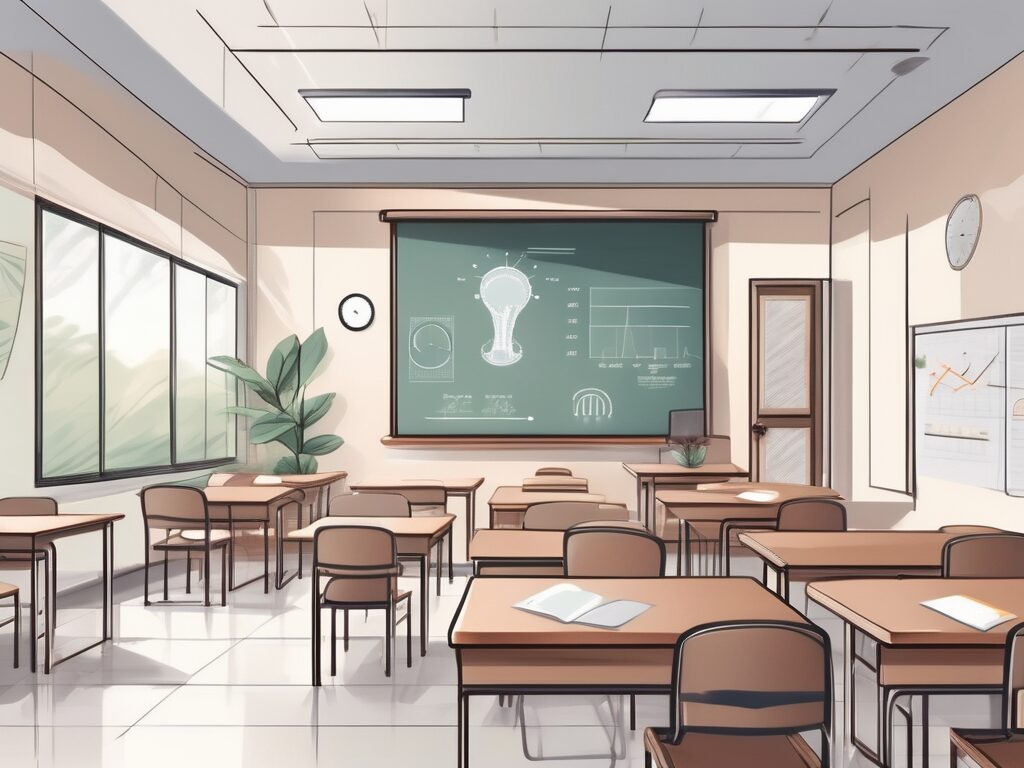In the bustling, vibrant country of Thailand, the education system is a dynamic and ever-evolving landscape. As a teacher with a Master’s in Education, you’re well-equipped to navigate this terrain. However, the real challenge lies in managing a classroom effectively. This task requires a delicate balance of discipline, empathy, and creativity. Here are six tips to help you master classroom management in Thailand.
1. Understand the Thai Culture
Thailand, known as the ‘Land of Smiles’, is a country rich in culture and tradition. As a teacher, understanding these cultural nuances can significantly enhance your classroom management skills. For instance, respect for elders and authority figures is deeply ingrained in Thai culture. Leveraging this cultural aspect can help you establish authority in the classroom.
Moreover, the Thai education system places a high emphasis on rote learning. While this approach has its merits, it might stifle creativity and critical thinking. As a Master’s in Education holder, you can introduce more interactive and engaging teaching methods, striking a balance between the traditional and the innovative.
Embrace the Wai
The ‘Wai’ is a traditional Thai greeting involving a slight bow with the palms pressed together in a prayer-like fashion. Incorporating the Wai in your classroom can foster a sense of respect and discipline. It also shows your appreciation for Thai culture, which can help you build rapport with your students.
2. Establish Clear Rules
Setting clear, concise rules is a cornerstone of effective classroom management. These rules should cover behaviour, participation, and work ethics. However, remember to keep these rules flexible enough to accommodate cultural differences and individual learning styles.
It’s also crucial to communicate these rules to your students at the beginning of the term. This transparency ensures that everyone is on the same page and knows what’s expected of them. Consistent enforcement of these rules is equally important to maintain discipline and order in the classroom.
Use Visual Aids
Visual aids like posters and charts can be an effective way to reinforce classroom rules. They serve as constant reminders of acceptable behaviour and work ethics. Plus, they add a touch of creativity to your classroom, making it a more engaging learning environment.
3. Foster a Positive Learning Environment
A positive learning environment encourages students to participate actively and enhances their learning experience. This involves creating a safe, inclusive space where students feel comfortable expressing their thoughts and ideas.
One way to achieve this is by promoting mutual respect and understanding among students. Encourage them to appreciate their peers’ unique perspectives and cultural backgrounds. This not only fosters a positive classroom atmosphere but also teaches valuable life skills like empathy and tolerance.
Encourage Group Work
Group work is an excellent way to foster a positive learning environment. It promotes teamwork, improves communication skills, and encourages students to learn from each other. Moreover, it adds an element of fun to learning, making your classroom a more engaging place.
4. Use Technology Wisely
Technology can be a powerful tool in education if used wisely. It can make learning more interactive and engaging, catering to different learning styles. However, it’s crucial to strike a balance between traditional teaching methods and technology.
For instance, you can use multimedia presentations to supplement your lectures, or use educational apps to facilitate homework and assignments. Just remember, technology should enhance learning, not replace the human touch that is so essential in teaching.
Stay Updated with EdTech Trends
Staying updated with the latest educational technology (EdTech) trends can help you make the most of technology in your classroom. Attend seminars, webinars, and workshops on EdTech. Join online forums and communities of educators to exchange ideas and experiences. This continuous learning will keep you at the forefront of innovative teaching methods.
5. Provide Constructive Feedback
Feedback is an integral part of the learning process. It helps students understand their strengths and areas for improvement. However, the key is to provide constructive feedback that encourages, not discourages, students.
Be specific and objective in your feedback. Instead of saying “Your essay is poor”, say “Your essay could be improved by adding more supporting details to your arguments”. This approach not only helps students improve but also boosts their confidence and motivation.
Use the Sandwich Method
The sandwich method is a popular technique for giving feedback. It involves starting with a positive comment, followed by constructive criticism, and ending with another positive comment. This method ensures that feedback is balanced and well-received.
6. Take Care of Your Well-being
Lastly, but most importantly, take care of your well-being. Teaching can be a demanding job, both physically and emotionally. Maintaining your health and well-being is crucial to perform your best in the classroom.
Ensure you get enough rest, eat a balanced diet, and engage in regular physical activity. Also, make time for hobbies and activities that you enjoy. A happy, healthy teacher is more likely to create a positive, productive learning environment.
Practice Mindfulness
Mindfulness involves being present in the moment and accepting it without judgement. It’s a powerful tool to manage stress and improve mental well-being. Practice mindfulness exercises like deep breathing, meditation, or yoga to stay calm and focused.
In conclusion, effective classroom management in Thailand requires a blend of cultural understanding, clear communication, positive reinforcement, wise use of technology, constructive feedback, and self-care. With these tips, you’re well on your way to creating a positive, productive learning environment for your students.
Advance Your Teaching Career with iQTS
While mastering classroom management is crucial, advancing your teaching career in Thailand and beyond requires more. The IQTS at UWE offers the International Qualified Teacher Status (iQTS) Programme, specifically designed to elevate your professional development. Overcome the barriers of strict qualification requirements, enhance your career progression with a notable increase in promotion rates and salary, connect with a global community of educators, and gain a comprehensive understanding of international curricula. Embrace the flexibility of online study options that fit your busy schedule. Make Your Next Step towards a transformative educational journey with the iQTS programme.

